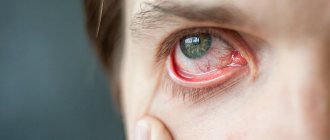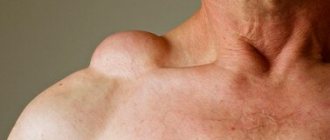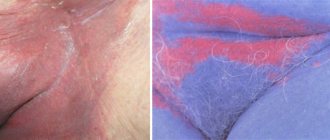Tryptophan and the nervous system
Supplementation of this amino acid to the diet is considered as a treatment for depression and sleep disorders, mainly due to tryptophan's connection with the synthesis of serotonin (the happy hormone) and melatonin (the sleep hormone). In addition, tryptophan supplements are used as an additional treatment to help treat cognitive disorders, depression, or neurodegenerative diseases.
Decreased serotonin secretion, in turn, is associated with autism spectrum disorder, obesity, anorexia and bulimia nervosa, and other diseases presenting symptoms of peripheral diseases. The literature strongly suggests that tryptophan plays a significant role in the proper functioning of the brain-gut axis and immunology.
Available information suggests tryptophan to be an important dietary component due to its role in the serotonin pathway [1].
Tryptophan
In order for the human body to synthesize vital proteins, it needs amino acids, the main ten of which include the amino acid tryptophan. Its role in the functioning of the nervous system cannot be underestimated, especially when it comes to those processes on which relaxation, rest and sleep depend. Foods containing tryptophan in large quantities are beneficial for many reasons. For example, tryptophan helps regulate appetite, improves sleep, and improves mood. Most tyrptophan is found in food sources such as red meat, tuna, shellfish, turkey, dairy products, legumes, soybeans and soy products, nuts, and seeds.
The amino acid tryptophan performs two important tasks in the body. The first includes the synthesis of niacin, the second - the synthesis of serotonin. Niacin, also known as vitamin B3, is produced in the liver due to the small amount of tryptophan obtained from food. Serotonin synthesis is also essential because this neurotransmitter, also called the “happy hormone,” helps coordinate appetite, sleep, and mood. Since tryptophan can stimulate the production of serotonin, this amino acid can be used to treat a wide range of diseases, which primarily include insomnia, depression and anxiety.
Symptoms of tryptophan deficiency
In general, if we touch on the main symptoms of tryptophan deficiency, we should explain some of the features of their manifestation. Since it is an essential amino acid, a lack of it in the diet can lead to the consequences that are most often observed with protein deficiency, namely weight loss and impaired growth in children. If this deficiency is combined with a lack of niacin, it can cause pellagra, which is characterized by dermatitis, diarrhea and dementia. Pellagra can also be fatal. And even though this disease occurs infrequently, a direct connection with a lack of tryptophan can be seen very clearly.
With reduced tryptophan in the human diet, serotonin levels drop. A low serotonin threshold can lead to depression, anxiety and irritability, impatience, impulsive behavior and inability to concentrate. This is also accompanied by memory impairment, insomnia and weight gain due to overeating mainly carbohydrate foods.
To summarize the main indicators of problems associated with tryptophan deficiency, the following list of symptoms can be identified: depression, poor sleep, anxiety, impulsivity, irritability, inability to concentrate, slow growth in children, weight gain or unexplained weight loss, overeating and carbohydrate cravings, insomnia .
In order to understand what factors may contribute to tryptophan deficiency, the following point should be clarified. Since vitamin B6 helps convert tryptophan into niacin and serotonin, this means that a lack of this vitamin in food can have the consequences of lowering serotonin levels and stopping the process of niacin formation. There are also a number of factors that weaken the conversion of tryptophan to serotonin, this could be a diet with excessive consumption of sugar and protein, it could be hypoglycemia and diabetes, it could also be bad habits like smoking and consuming large amounts of alcohol.
Symptoms of excess tryptophan
A high content of tryptophan in the diet, as is known, does not cause its excess in the body. Additionally, tryptophan is prescribed for therapeutic purposes, as a drug or dietary supplement, in doses greater than five grams per day and does not cause any side effects.
The influence of food preparation, storage and processing methods on tryptophan levels in foods There are no studies showing how the way food is prepared, stored or processed affects the level of tryptophan in foods.
Interaction of tryptophan with drugs
People taking antidepressants known as selective serotonin reuptake inhibitors (SSRIs) (including fluoxetine, paroxetine, and sertraline) should consult a doctor before taking any other supplements or medications that also increase the amount of serotonin in the body.
Tryptophan and other products
Vitamin B6, vitamin C, folic acid and magnesium are essential for tryptophan metabolism. In addition, tyrosine and phenylalanine are competitors of tryptophan.
Because of this, some medical professionals believe that consuming foods rich in tryptophan does not increase blood levels sufficiently to produce a therapeutic effect, and therefore tryptophan supplements should be taken to increase blood levels.
What conditions require special attention to tryptophan?
Tryptophan may play a role in the prevention and/or treatment of the following diseases:
- Anxiety
- Depression
- Headache
- Insomnia
- Nightmares
- Obesity
- Obsessive/compulsive disorder
- Pain
- Premenstrual syndrome
- Senile dementia
- Tourette's syndrome
Tryptophan metabolism
The WHO recommended daily intake of tryptophan from food is 4 mg/kg (1/2 to 2 g per day). In addition, it is important to know that the entry of tryptophan into the brain depends on the amount of free tryptophan in the blood and on the concentration of other amino acids (such as BCAAs) that compete with tryptophan for transporters used to cross the blood-brain barrier.
The enzyme tryptophan hydroxylase, which catalyzes the conversion of tryptophan to 5-hydroxytryptophan (5-HTP), can be inhibited by various factors such as stress, insulin resistance, vitamin B6 deficiency, or magnesium deficiency. For this reason, magnesium and vitamin B6 are often used together for nervous system disorders. Their deficiency prevents tryptophan from converting into 5-HTP and subsequently into serotonin [2].
Tryptophan
CAS number:
72-22-3
Gross formula:
C11H12N2O2
Appearance:
odorless white crystalline powder
Chemical name and synonyms:
L-Tryptophan, L(-)-Tryptophan;
(S)-2-Amino-3-(1H-indol-3-yl)propanoic acid; L-alphs-Amino-3-indolepropionic acid; Indole-3-alanine; Trp. Physico-chemical properties:
Molecular weight 204.23 g/mol pH (1% solution/water): 5.5-7.0 Density 1.34 Decomposition temperature: 289 °C (552.2 °F) Melting point 280-285 ° C alpha -31.1 º (c = 1, H20)
Solubility:
Amikacin is soluble in hot water. Partially soluble in cold water. Insoluble in diethyl ether. Slightly soluble in acetic acid. Solubility in water: 0.23 g/l at 0°. C; 11.4 g/l at 25 ° C; 17.1 g/l 50 deg. C; 27.95 g/l at 75 degrees. C; 49.9 g/l at 100 degrees. C Insoluble in chloroform. Soluble in hot alcohol and solutions of dilute acids and alkaline hydroxides.
Description:
Tryptophan is an essential amino acid that is involved in protein synthesis. The body does not produce tryptophan, so its reserves must be replenished with food. It is found in a fairly large number of products of animal and plant origin, such as red meat, chocolate, dairy products (yogurt, milk, cottage cheese), as well as nuts, oats, fish, dates, bananas, spirulina, seeds and others.
Tryptophan is involved in the construction and strengthening of the cell membrane. In addition, it is a precursor of many important biochemical compounds: serotonin, melatonin, vitamin B3. Auxins (a class of phytohormones) are also formed from tryptophan.
Human intestinal bacteria are capable of separating tryptophan into indole and skatole. Insufficiency of tryptophan in the body during normal dietary intake is sometimes caused by impaired fructose malabsorption and lactose intolerance, which lead to improper absorption of tryptophan in the intestines, a decrease in its level in the blood and often to depression.
In the early 1990s, the import of L-Tryptophan was banned in the United States following cases of a fatal autoimmune disease called eosinophilia-myalgia syndrome due to the public ingesting improperly prepared batches of tryptophan. Although L-Tryptophan was isolated in a Japanese factory that exposed it to toxic bacterial metabolites during the purification process, the ban was maintained and the availability of tryptophan was limited to a prescription drug (triptan), infant formula, and enteral nutrition products. Since 1994, L-Tryptophan has been produced and sold as a dietary supplement in the United States, while the imported product remains subject to special regulations.
Application:
Tryptophan is used as an additive in the food industry. In medicine, tryptophan is one of the pharmaceutical products produced in various formulations for oral and parenteral administration.
Tryptophan supplementation has a positive effect on several critical body functions due to its ability to increase levels of serotonin (a calming neurotransmitter when present in moderation) and/or melatonin (a sleep-inducing hormone secreted by the pineal gland in response to darkness or low light levels). Clinical studies generally confirm the effectiveness of tryptophan in certain sleep disorders and other pathological conditions of the body, usually associated with insufficient levels of serotonin in the body. Given the properties and functions of tryptophan, it is used both as an independent antidepressant and in combination with other drugs that help fight depression in people.
Tryptophan is also used in the process of quitting smoking. According to trials, tryptophan (50 mg/kg/day) was used as an adjunctive therapy for smoking cessation. During the two-week study, subjects receiving tryptophan experienced fewer nicotine withdrawal symptoms and were able to abstain or smoke less frequently than controls.
Receipt:
A method for producing L-tryptophan involves cultivating coryneform glutamic acid-producing bacteria transformed with an expression vector capable of replicating and expressing a functionally related anthranilic acid phosphoribosyltransferase gene isolated from the glutamic acid-producing bacterium brevibacterium (brevibacteria of the actinomycete genus), with cultivation of the transformants in a culture medium for producing L-tryptophan and recovering L-tryptophan accumulated in the culture medium.
Another method for producing L-tryptophan involves the interaction of indole with serine in the presence of tryptophan synthetase or tryptophanase, where DL-serine or D-serine is used, and the serine racemization enzyme is included in the reaction system and reacts with serine.
Effect on the body:
The most studied aspect of tryptophan metabolism is the serotonin pathway, which involves the subsequent formation of melatonin. Tryptophan hydroxylase is the rate-limiting enzyme for the production of serotonin and involves the conversion of tryptophan to 5-hydroxytryptophan (5-HTP). This enzyme can be inhibited by stress, insulin resistance, magnesium or vitamin B6 deficiency, or increasing age. Decarboxylation of 5-HTP to serotonin depends on the presence of the active form of vitamin B6, pyridoxal 5′-phosphate, while further conversion to melatonin requires S-adenosyl-L-methionine (SAMe). Tryptophan and 5-HTP cross the blood-brain barrier, although tryptophan requires active transport and competes for the same receptors with other neutral amino acids - tyrosine, phenylalanine, valine, leucine and isoleucine. In fact, the best predictor of this effect on the brain of tryptophan and serotonin is the ratio of serum tryptophan to the pool of large neutral amino acids. Clinically, however, it is important that serotonin levels increase with carbohydrate ingestion because insulin release accelerates serum clearance of competing valine, leucine, and isoleucine. Likewise, a higher percentage of protein in the diet slows down the rise in serotonin levels.
Although tryptophan can be found freely in blood serum, most of its molecules are bound to albumin. Tryptophan metabolites in urine include 3-hydroxykynurenine, xanthurenic acid, and kynurenine. However, serum kynurenine is metabolized to niacin (vitamin B3). This conversion is inefficient because 60 mg of tryptophan is required to synthesize 1 mg of niacin, which also depletes vitamin cofactors B1, B2 and B6.
The main mechanism of action of tryptophan is its role as a metabolic precursor to the neurotransmitter serotonin. Other neurotransmitters and central nervous system (CNS) chemicals such as melatonin, dopamine, norepinephrine, and beta-endorphin have also been shown to increase after oral tryptophan. There is limited evidence linking tryptophan modulation by the endocrine system. The effects of tryptophan on cortisol levels have been inconsistent. Although intravenous tryptophan stimulates the secretion of prolactin and growth hormone, this relationship has not been tested with oral administration.
Toxicological data:
LD50 oral, rat > 16,000 mg/kg.
Tryptophan as a precursor to serotonin
Tryptophan is the only precursor to the neurotransmitter serotonin. Supplemental tryptophan may enhance serotonin neurotransmission to produce therapeutically important effects and reverse serotonin deficiency. Anorexia nervosa (AN), an eating disorder associated with high rates of psychiatric comorbidity, including psychosis, hyperactivity, depression and anxiety, has the highest mortality rate of all psychiatric diseases. Evidence suggests that excessive dieting and food restriction may reduce tryptophan and thus serotonin levels in the brain in patients, causing depression, psychosis and hyperactivity. It has been found that, in general, patients with depression are deficient in tryptophan compared to healthy subjects. Two intervention studies examining the effects of L-tryptophan or 5-HTP supplementation on depression found that both tryptophan and 5-HTP were superior to placebo in relieving depressive symptoms [3].
In one study, the subjects were male patients suffering from alcoholism and associated depression and sleep disorders. Subjects taking L-tryptophan 3 g per day for 4 days reported significantly lower levels of depression than participants receiving placebo [4].
The effect of tryptophan on sleep
The earliest experimental results convincingly demonstrated the sleep-inducing effects of L-tryptophan in doses ranging from 1 to 15 g at bedtime. But a later laboratory study expanded the dose-response curve by comparing even smaller doses of 1/4, 1/2, and 1 g of L-tryptophan versus placebo in 15 subjects with moderate insomnia (sleep latency greater than 30 minutes). One gram of L-tryptophan significantly reduced sleep latency, but lower doses produced a trend in the same direction. Stage IV sleep was significantly increased by 1/4 g of L-tryptophan at bedtime. Thus, the effective dosage of tryptophan taken before bed may be within 1 gram [5].
The effect of tryptophan on appetite
Gut hormones such as cholecystokinin and glucagon-like peptide-1 (GLP-1) play a role in satiety factors. Strategies to increase the secretion of satiety hormones may provide a therapeutic approach to the treatment of obesity.
One study examined the role of oral tryptophan at dosages of 0.52 g and 1.56 g on the secretion of these hormones in individuals without diabetes. At a higher dose, L-tryptophan stimulated the release of cholecystokinin, induced a significant delay in gastric emptying, and caused a slight increase in GLP-1 secretion [6]. In another study in normal-weight and overweight men, 3 g of tryptophan consumed 15 minutes before a carbohydrate meal reduced postprandial blood glucose by slowing gastric emptying [7].
Later experiments revealed that tryptophan taken within 1-1.5 g affects both intestinal motility and hormonal function, significantly reducing energy consumption. The strong inverse correlation between energy intake and plasma L-tryptophan suggests that, in addition to intestinal mechanisms, the direct effects of circulating L-tryptophan also mediate its inhibitory effect on food intake [8].
Another interesting study linked amino acid intake to large-scale changes in brain networks involved in regulating metabolism. A direct connection between satiety hormones and brain regions involved in metabolic regulation was confirmed by a positive correlation between brain activity in the insular cortex and plasma insulin levels after oral administration of L-tryptophan (within 1 g). Supplementation with L-tryptophan (or L-leucine) immediately affected specific brain networks that support the food-reward system and appetite regulation [9].
Tryptophan for interval training
Team sports players perform better on the field if they take 600 mg of the amino acid tryptophan daily. Scientists from the University of Barcelona came to this conclusion after conducting experiments on students involved in sports.
Tryptophan and exercise
Discussions among physiologists about whether tryptophan enhances performance tend to end in deadlock. Tryptophan is a precursor to the neurotransmitter serotonin. If you have more serotonin in your brain than usual, you feel good. Your brain becomes less sensitive to pain, and you will be less distracted by unpleasant thoughts and unnecessary information. Thus, supplementation with tryptophan may create a condition that also helps improve athletic performance.
Conflicting Research
In the 1980s, this idea inspired researchers at the University of Barcelona to conduct an experiment with students playing sports. Students were required to run at an intensity that was 80% of their maximum oxygen consumption. At this level of intensity, you can no longer hold a conversation without getting out of breath. When subjects were given 600 mg of tryptophan before running, they ran almost fifty percent longer than after taking a placebo. In 1992, researchers from the Norwegian University of Sport and Physical Education repeated the experiment with several modifications.
They gave subjects 1200 mg of tryptophan and forced them to work at 100% of their maximum oxygen consumption. This had no effect. [10]
Dutch researchers in the mid-nineties also did not record any effect. They gave their subjects tryptophan not before, but during physical activity. [11] But one person who is most reluctant to believe that tryptophan can improve athletic performance is the researchers who believe in the ergogenic effects of BCAAs. These amino acids are generally believed to reduce fatigue during endurance events because they interfere with the entry of tryptophan into the brain, thereby preventing its conversion to serotonin. [12] [13] [14]
According to this theory, the brain can only absorb a limited amount of amino acids. During intense physical exercise, muscles take all amino acids from the blood except tryptophan. As a result, the brain absorbs more tryptophan and converts it into serotonin, and serotonin causes athletes to feel tired. Supplementing with BCAA inhibits the brain's uptake of tryptophan, reducing fatigue and increasing endurance, while supplementing with tryptophan only leads to negative effects, say BCAA proponents.
Research on the effect of tryptophan
Spanish researchers who demonstrated the performance-enhancing effects of tryptophan in 1988 conducted another experiment decades later. Scientists forced 20 sports students aged 20-22 to do an hour-long interval training on a bicycle ergometer. The training session simulated the training load of team sports players during a match.
First, students cycled for 10 minutes at 50% of their VO2max (maximum oxygen consumption level). They then drove for exactly 30 seconds at top speed. The subjects had to repeat this cycle three more times. Finally, the students cycled for another 20 minutes at 50 percent of their VO2max.
The researchers ran the test twice. In one case, students took 2 capsules containing 300 mg of tryptophan for three days before the test and on the day of the test itself (two hours before the start of the cycle). In total, they took 600 mg of tryptophan per day.
Results of the effect of tryptophan on interval training
The supplement worked. The figure below shows that during half of the burst 30-second sessions, tryptophan resulted in greater average power and greater peak power. Simply put, athletes were able to pedal harder when they took tryptophan.
Moreover, subjects walked more distance in the last 20 minutes of the test when they took tryptophan. This can be seen in the picture above.
Researchers have found that supplementing with tryptophan reduces the increase in fatigue. In experiments where tryptophan had no effect, it is possible that too high a dose of tryptophan was used or that it was not given sufficiently in advance of the exercise. The authors of this study suggest that tryptophan may not only be a precursor to serotonin, but also related compounds that do not cause fatigue and may actually have stimulating effects.
Interesting research
- Grumpiness
Scientists conducted an interesting experiment with the participation of people who identified themselves as “grumpy.” Participants in the experiment were given 100 mg of tryptophan three times a day, and soon positive results were recorded. People became more compliant, their behavior became more pleasant to those around them, and the test subjects’ tendency to quarrel decreased. But 500 mg of the substance, taken once, relieves adolescents from increased physical aggression
- Insomnia
Sleep disturbance is the cause of irritability and moodiness in many people. In the 1970s, it was believed that tryptophan taken in a dose of 1-5 grams helped improve sleep quality. But then it was found that 250 mg of the amino acid is enough to enter the deep sleep stage. Further studies have shown that 1 g of the substance helps to effectively combat insomnia, significantly shortens the time it takes to fall asleep, and reduces wakefulness in the evening. Tryptophan has also been proven effective in combating obstructive sleep apnea.
- Bitterness
It is already known that bad mood, depression and anger are most often the result of a lack of serotonin, and therefore tryptophan. But there is another interesting fact. It turns out that amino acid deficiency can affect facial expressions, causing a more angry expression on the face.
Can tryptophan change behavior?
If you take a few grams of the amino acid tryptophan every day, you will behave in a more dominant manner. This follows from a human study that Canadian psychologists published in 2001 in the journal Neuropsychopharmacology. According to the material, adding tryptophan also makes you a little less grumpy.
Study of behavioral factors after tryptophan intake
In the body, enzymes convert the amino acid tryptophan into 5-hydroxytryptophan (5HTP) and 5-HTP into serotonin.
Serotonin is a neurotransmitter that plays an important role in our well-being. Its levels usually decrease with depression, but if we win a conflict or climb the social ladder, serotonin levels usually increase.
The researchers wondered whether adding tryptophan could change behavior, so they gave 98 subjects 3 grams of the supplement daily for 12 days. During each of three meals, subjects took 1 capsule containing 1000 mg of tryptophan. Another time, subjects were given a placebo. The researchers determined the subjects' behavior by presenting them with a daily list of statements from which the participants had to indicate whether they applied to their behavior.
Argument-related statements included, for example, “I made a sarcastic comment,” or “I gave incorrect information,” “I was impatient,” and “I raised my voice.” Statements associated with dominant behavior included “I asked the other for something,” “I spoke my mind,” and “I set goals for the other.”
Research results
Tryptophan supplementation made subjects behave more dominantly and reduced grumpiness, but did not change compliance. In addition, tryptophan reduced the maximum and average levels of aggressive behavior.
The supplement had side effects and the most common was fatigue. This is likely due to the fact that tryptophan is also converted into the sleep hormone melatonin at the end of the day.
“In conclusion, our study provides preliminary evidence that increasing serotonin levels may reduce aggressive behavior and increase dominance in healthy individuals,” the Canadians wrote. “These conclusions should remain preliminary until confirmed, taking into account possible order effects. However, our study indicates the feasibility
further research examining the influence of specific neurotransmitter systems on human social interaction in everyday life. These studies may also be generalizable to patients suffering from different types of psychopathology and may reveal the extent to which different psychopharmacological agents, as well as psychotherapeutic methods, alter specific aspects of social interaction."
Dangers of Overdose
Despite the many positive effects of natural tryptophan on the human body, there are some cautions about taking the substance in the form of dietary supplements or tablets. Overdose can cause heartburn, stomach pain, belching, flatulence, vomiting, diarrhea, loss of appetite and swelling of the bladder. Other possible side effects include headaches, drowsiness, dizziness, muscle weakness and dry mouth.
The maximum permissible safe dose of tryptophan that does not cause side effects is considered to be 4.5 grams. When consumed above the specified limits in combination with antidepressants, it can lead to the so-called “serotonin syndrome” (delirium, convulsions, high body temperature, and sometimes coma). Also, people with kidney or liver disease should treat tryptophan with caution.
Laboratory blood tests can determine the real amount of tryptophan in the body, in particular the content of 3-hydroxyanthranilic acid.










